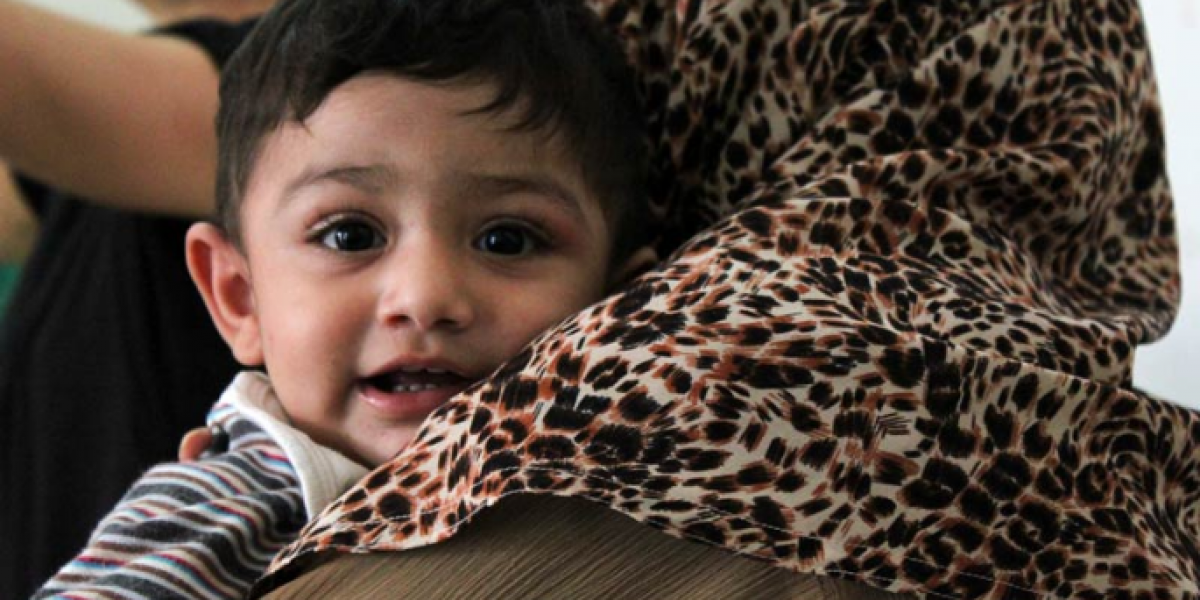Praying with Ahmadiyya Muslim refugees
01 November 2011|Bernard Arputhasamy, S.J. Regional Director, Jesuit Refugee Service Asia Pacific

(Bangkok) November 1, 2011 — “I cry when I pray.”
I had asked Aarya and Husna if we could talk about prayer together and this was Aarya’s immediate response. I was taken aback by her honesty, abruptness and raw emotion. Not surprisingly, the persecution Aarya and Husna’s family have endured has taken a heavy emotional toll. They are Ahmadiyya Muslim refugees from Pakistan and were forced to flee one and a half years ago due to religious persecution.
“In Pakistan, I’m not a Muslim but here I’m Muslim,” Aarya tells me smiling, proud of her Muslim identity.
She explains that the religious persecution that she and her community endure is State sanctioned. In fact, they are officially considered “non-Muslim” by the Pakistani government. In response to anti-Ahmadis riots in 1974 the Pakistani parliament passed a constitutional amendment that officially pronounced Ahmadis “non-Muslim.”
The introduction of Blasphemy laws in the 1980s further fueled religious animosity and persecution of the Ahmadiyya community. These laws prohibit them from indirectly or directly expressing themselves as Muslims, effectively banning the profession of their faith and even speaking or writing Arabic. Indeed belief in the prophethood of Mirza Ghulam Ahmad itself is considered blasphemous, as it defiles the name of the Prophet Muhammed – a capital crime. In Pakistan, Ahmadis live in perpetual threat of religiously motivated attacks and persecution
Bernard Arputhasamy, S.J.
Regional Director, Jesuit Refugee Service Asia Pacific
The Ahmadiyya Muslim Community is a minority Islamic group that was founded in 1889 by Mirza Ghulam Ahmad who claimed divine revelation in restoring a corrupted Islam to a purer form and uniting all religions. As such, they believe in all religions and their respective prophets. Husna explains “we love all religions because we believe in all religions and all prophets.”
Despite the rejection of the Ahmadis by the Islamic community, the Ahmadis follow the same Holy Scriptures and teachings as other Muslims and believe in the same ‘Five Pillars of Islam’ and the ‘Six Articles of Faith.’ Aarya and Husna are particularly devout, engaging in prayer five times a day.
The month of August was a particularly challenging and happy month as this year it marked the holy month of Ramadan, the Islamic month of fasting. They explain to me their daily schedule — starting at 3:30 a.m. when they wake up for a 45-minute morning prayer, and to eat before sunrise.
During Ramadan, they are not allowed to eat or drink during sunlight hours, a challenge in the Cambodian heat; rather their days are dedicated to prayer, reflection and reading while engaging in daily work or chores. When asked what she prays for Aarya was quick to respond. “For life. For life for all around the world — mothers, sisters, brothers, cousins… and for me.”
“One of the principles of Jesuit Refugee Service is to serve everyone, equally, even in places where doing so could be sensitive and even dangerous. The presence on JRS teams of people from different faiths is a tangible witness to the courage of daring to reconcile. This inter-faith dimension is enriching for the life of JRS as we share ideals of faith and service inherent in our beliefs, contributing to building a multi-cultural and multi-ethnic society based on mutual tolerance.” (Fr. Peter-Hans Kolvenbach, S.J., former Superior General of the Society of Jesus)
Together we pray for a more tolerant world in which diversity is respected and celebrated rather than punished.
Together we pray for persecuted religious minorities, that they are safe and find comfort in the Lord.
Together we pray for refugees, that they are treated with dignity and compassion.
Together we pray for all Muslims who have recently completed the holy month of Ramadan, that they have been brought closer to God.
Lastly, together with Aarya, we pray for life around the world, for her and her family, and for all other persecuted Ahmadiyya Muslims.


